Celebrating Wikidata’s 12th birthday across the world
Dan Shick

On October 29, 2012, Wikimedia Deutschland launched a new project into the world: Wikidata, a repository of structured knowledge usable by humans and computers alike. Today, Wikidata’s store of knowledge makes up a large and vital part of the open knowledge ecosystem; its item count alone has swelled to over 110 million thanks to the efforts of its dedicated community.
Now that community is more active than ever. On the occasion of Wikidata’s twelfth birthday, just as they do every year, community members around the world planned and held celebrations — editathons, quizzes, questionnaires and training sessions, along with plenty of cake. Participants who are old hands at working with Wikidata showed crowds of curious newbies the ropes. Then, all together, they began working on Wikidata entries, raising data quality for existing items and creating shiny new ones, frequently filling in long-standing gaps with knowledge that few others in the world possess.

This year, as part of the festivities, Wikimedia Deutschland did something a little different: we piloted a community microgrant program that gave 10 organizations up to 1000 EUR to facilitate community events and activities celebrating Wikidata’s birthday. Priority was given to organizations with no access to other funding and whose activities focus on minoritized cultures and languages.
Above and beyond
Micheal Kaluba of the Wikimedia Community User Group Uganda reported that they’d originally planned to combine their celebration with that of Ugandan independence in October, but they found that Wikidata already held all the information about October 9, independence day in Uganda, that they’d intended to supply. Fortunately, that didn’t stop the 25 editors, including 10 newbies, from exceeding their own participation estimates: “Our target was to write 100 items,” Micheal said. “But it was amazing, people contributed to more than 130 items within the two weeks that we had planned.”
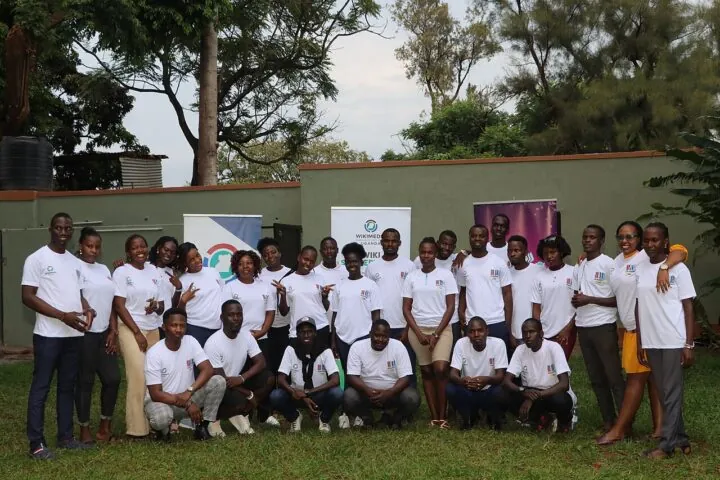
Some of those who joined in were surprised to find that they already had skillsets relevant to the volunteer work they joined in to do. “The participants were mostly librarians from the university library,” said Ngozi Osadebe. She works at the University of Nigeria Nsukka, and she co-organized the birthday event this year along with the Wikimedia Gombe Network. “The participants were surprised to learn that contributing to Wikidata is like descriptive cataloguing. Learning the steps for creating Wikidata entries were easy for the participants because it is related to the work they do in the library.”
Imelda Brazal of Wiki Advocates Philippines, who organized Wikidata Day in the Philippines 2024, has seen a similar phenomenon in the fellow librarians in her community. “These librarians were hesitant to contribute to Wikipedia because they felt that they needed to be experts in the subject matter before being editors. But working with Wikidata, for them, it feels like they’re just merely doing their work as librarians.”
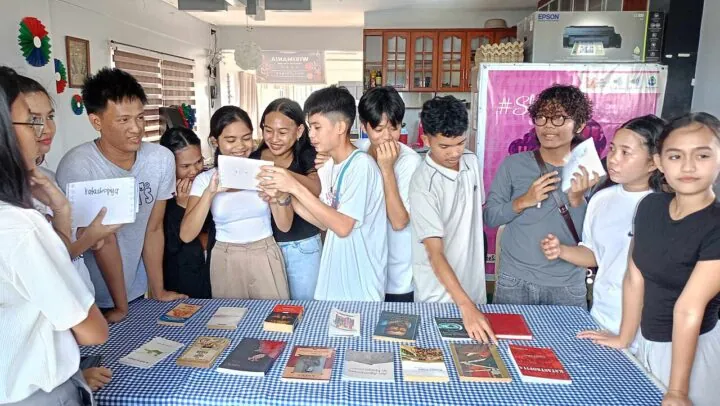
(Kunokuno, CC-BY-SA Intl.)
The events welcomed lots of new faces; the only thing they needed to bring along was their enthusiasm. Training formed part of the festivities. Some newbies were starting from zero, diving in with too little knowledge at first to make good edits. Pellagia Njau of Africa Wiki Women in Tanzania said, “We had [at least] 25 people joining from different countries, very curious to learn how to even add images to Wikidata and how to add references.”
Women and their occupations, in Wikidata
Pellagia and the other organizers at Africa Wiki Women also encountered something unexpected — their event centered around Wikidata items about women in Africa that were missing statements about their occupations. “We thought it would be an easy task,” said Bukola James. To get the new editors started, she thought, they could just provide Wikidata with the occupations they found in Wikipedia. But then: “Boom, there’s something that we are missing. The Wikipedia article was focusing on stories about their husbands [or] about how some of them were queens or princesses.” Did those titles count as occupations? The community had to take some time deliberating over the question. Resolving it (“Occupation is not a social identity but a role with responsibilities”) allowed the event to progress and led to higher quality data.
We Africans are far from the present focus on digitalization and tech skills; I want to see more engagement in Africa to help us grow.
Chinwendu Peace of the Igbo Wikimedians User Group
The unflappable Wikidata volunteer
Some celebrations took place in the face of significant obstacles. Because of a major regional power outage, the multi-organizer event at the University of Nigeria had to move at short notice to the university’s information technology center, appealing to the director to activate the generator for sorely needed air conditioning in the windowless building. And still people came, and they stayed.
A week before the event in Pasacao, Phillippines, the province of Camarines Sur was struck by a tropical storm: “There were major road closures because of heavy flooding, and some bridges were destroyed,” reported Imelda Brazal. “Some of our expected participants needed to rebuild their homes that were greatly damaged by the typhoon and flooding.” But volunteers didn’t let these setbacks stop them — the events went ahead, both virtually and in person, to great success. All that these gatherings seemed to require was an unquenchable passion for sharing knowledge, plus a little cake.
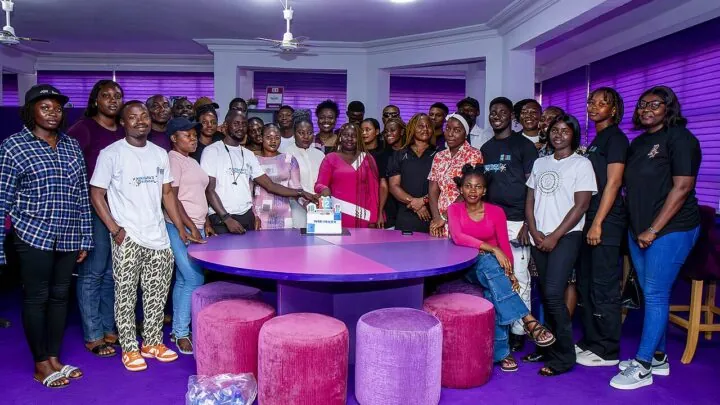
Looking to the future
We asked the organizers what they hoped to see happen in the coming year in the context of Wikidata. “Mentorship: community engagement and training, especially for underrepresented communities,” said Chinwendu Peace of the Igbo Wikimedians User Group of Nigeria. “We Africans are far from the present focus on digitalization and tech skills; I want to see more engagement in Africa to help us grow.”
Anthony Diaz, co-founder of Wiki Advocates Philippines and co-organizer of the Wikidata Day Philippines, said one thing he wishes for is an “annual theme, as a focus for what we need to work on. It may relate to human rights, gender equality or language preservation. A general theme usually guides organizers to also generate topics and working lists to be improved in Wikidata.”
Paul Bouaffou of the Wikimedia Community User Group in Côte d’Ivoire hopes for more and better access to information resources. “Many people are still unaware of Wikidata and its importance. In some regions, Internet connectivity, access to computer equipment and electricity remain major obstacles.” In 2025, Paul hopes the working group can “explore collaborations with libraries, universities and cultural organizations [to] enrich Wikidata with underrepresented data.”
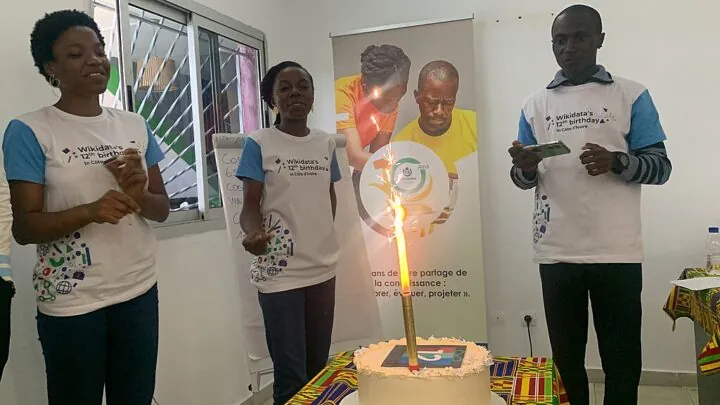
(Abiba Pauline, CC-BY-SA Intl.)
Naturally, the microgrants these organizations received couldn’t move mountains; they were never meant to do so. The microgrant program’s goal was simply to provide a little boost to community groups that needed it, in order to advance the cause of open and free knowledge on a festive occasion.
In these interviews, event organizers showed their dedication, enthusiasm, focus and good humor. Grant or no grant, community members already very much wanted to come together to teach and learn from each other, and to celebrate. The small boost that Wikimedia Deutschland supplied was nothing more than the cherry on top.
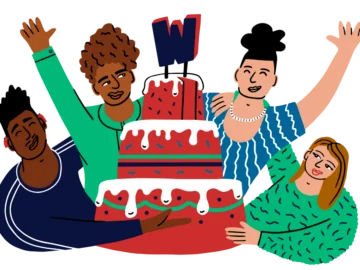
Learn more about the Wikidata twelfth birthday events on the event page, and take a look at dozens more pictures from around the world.



No comments yet
Leave a comment